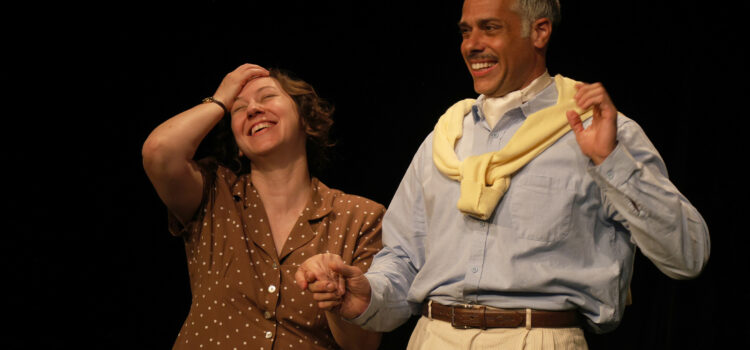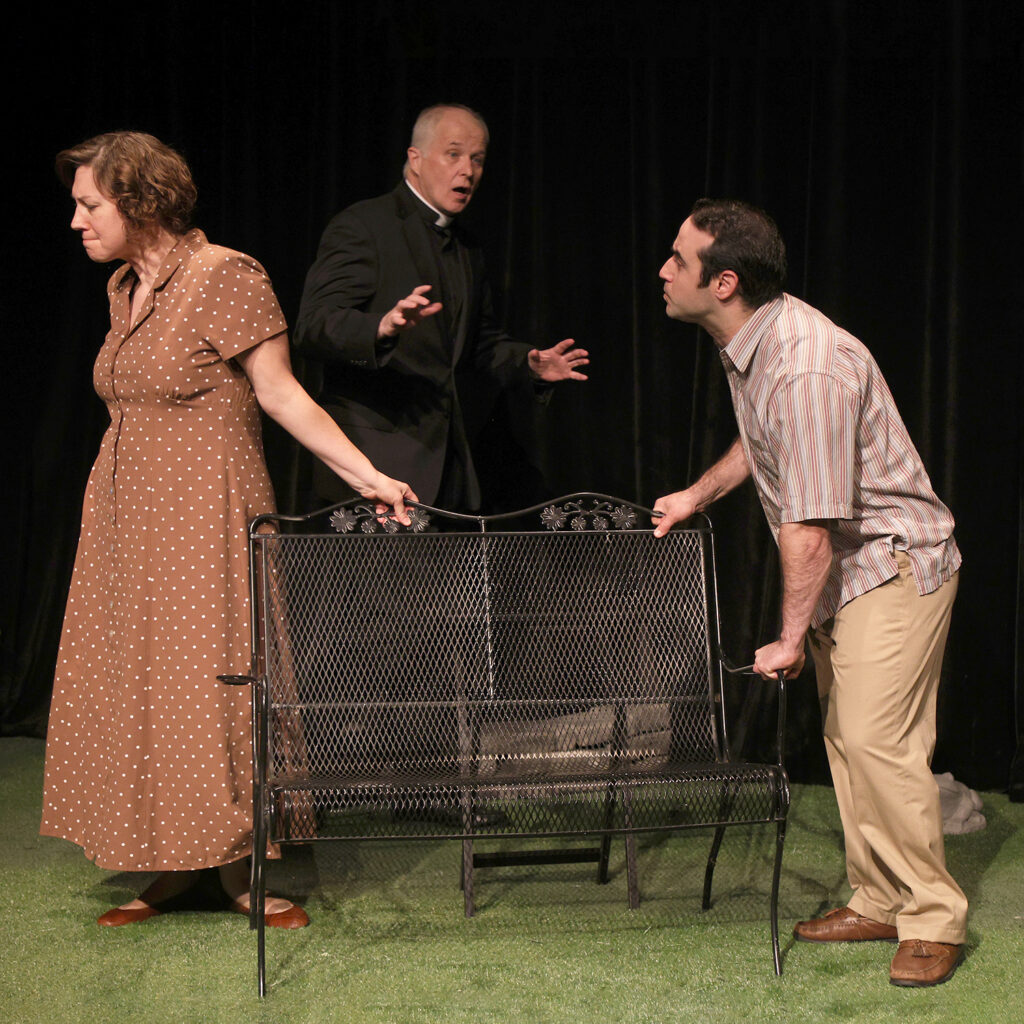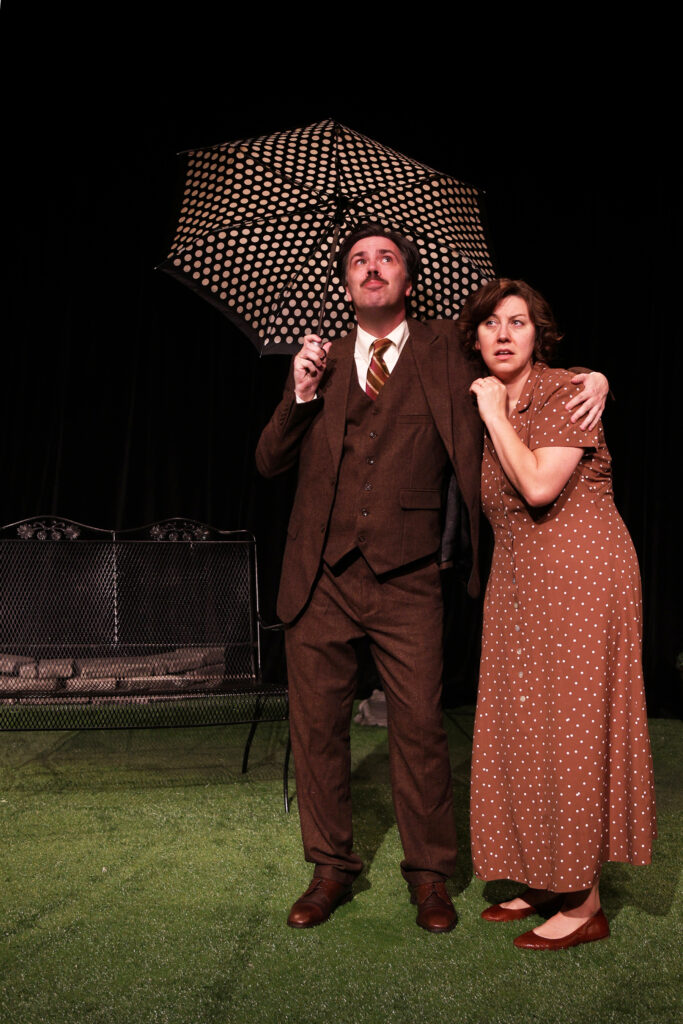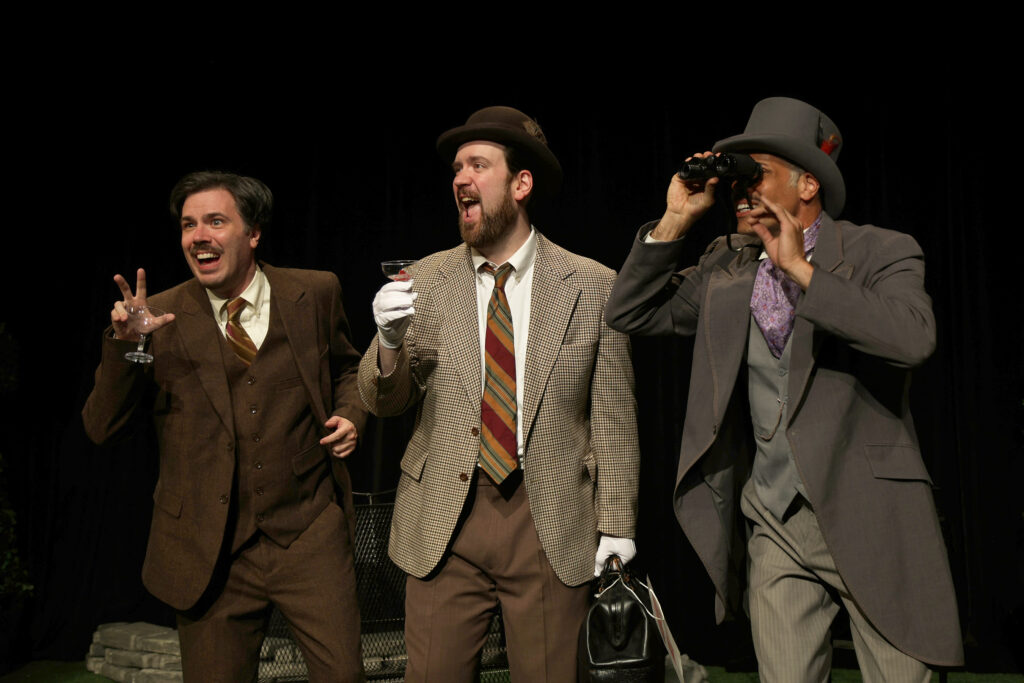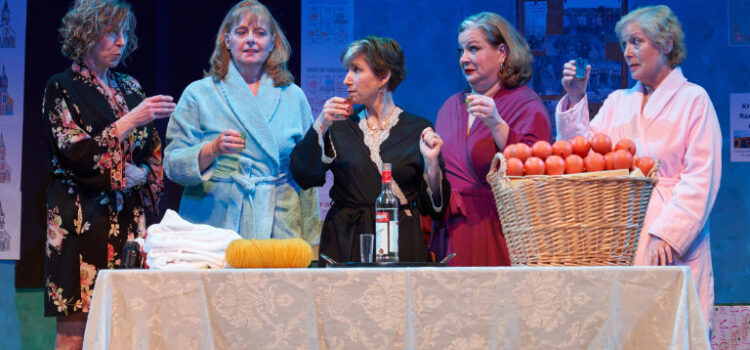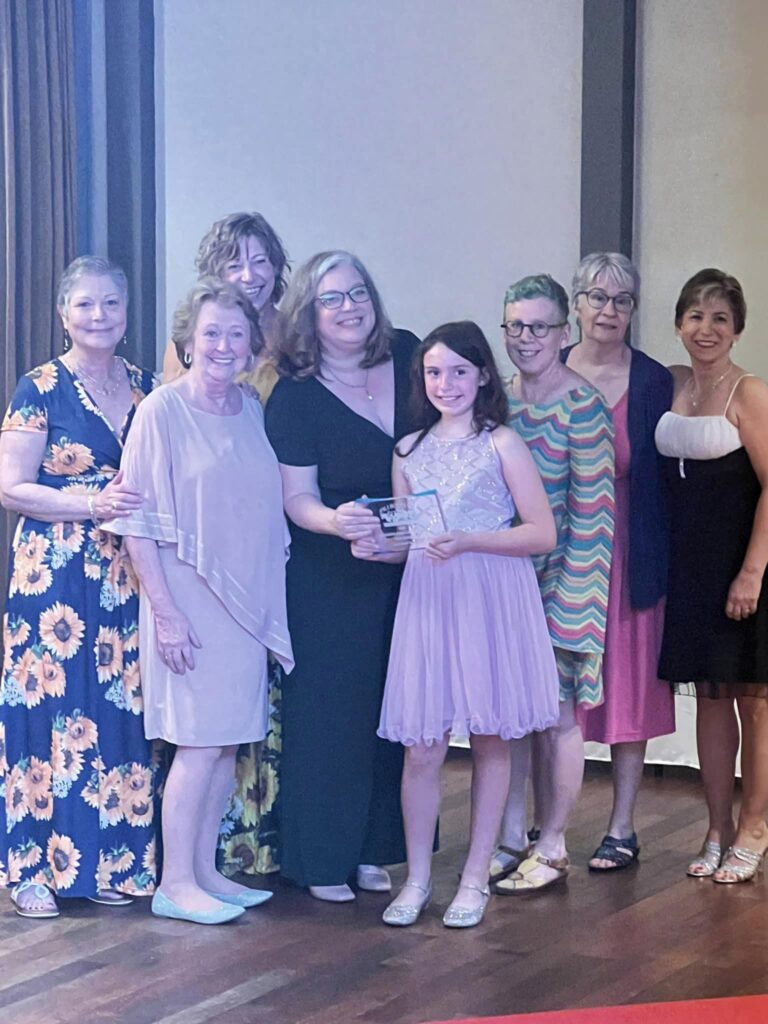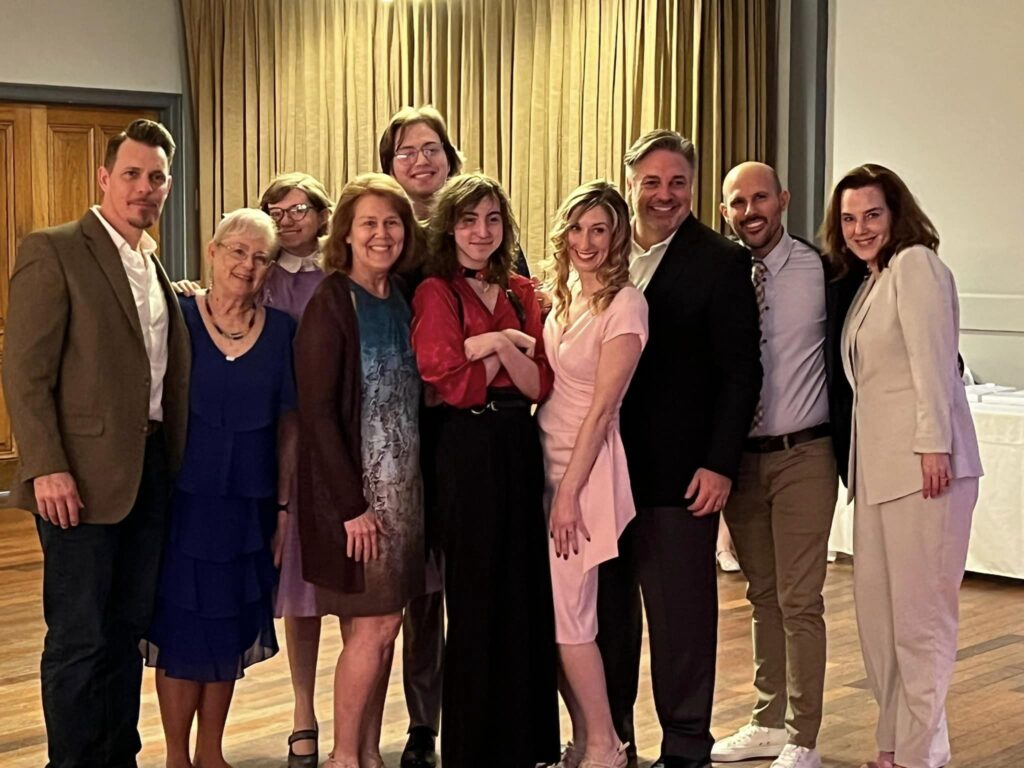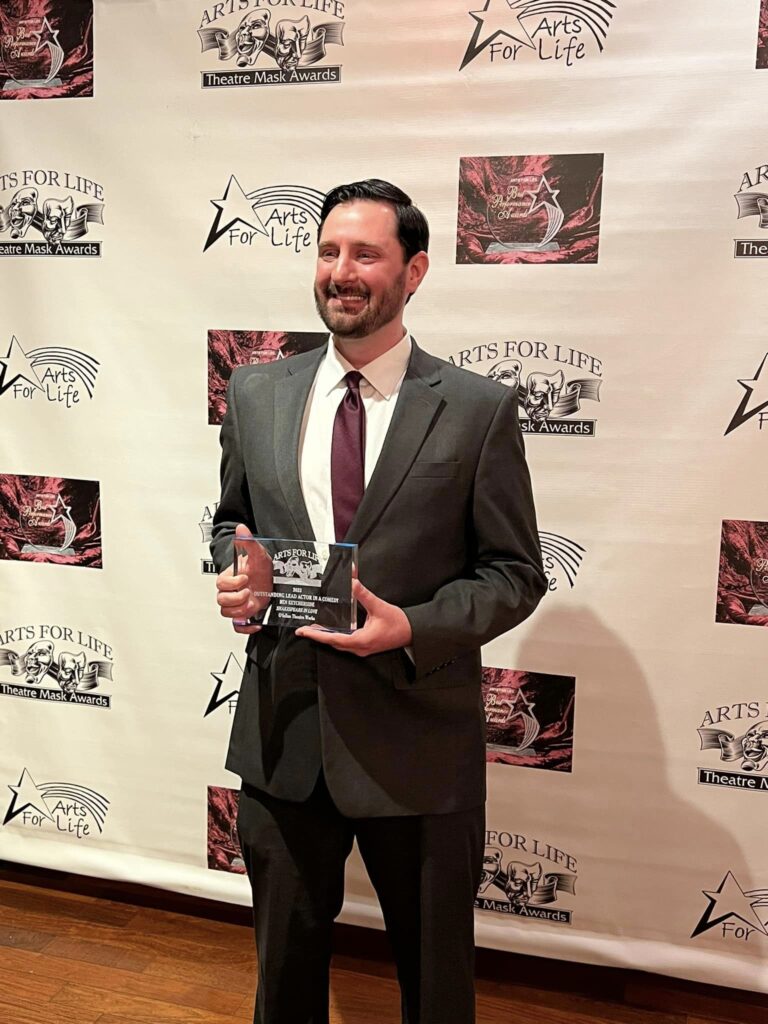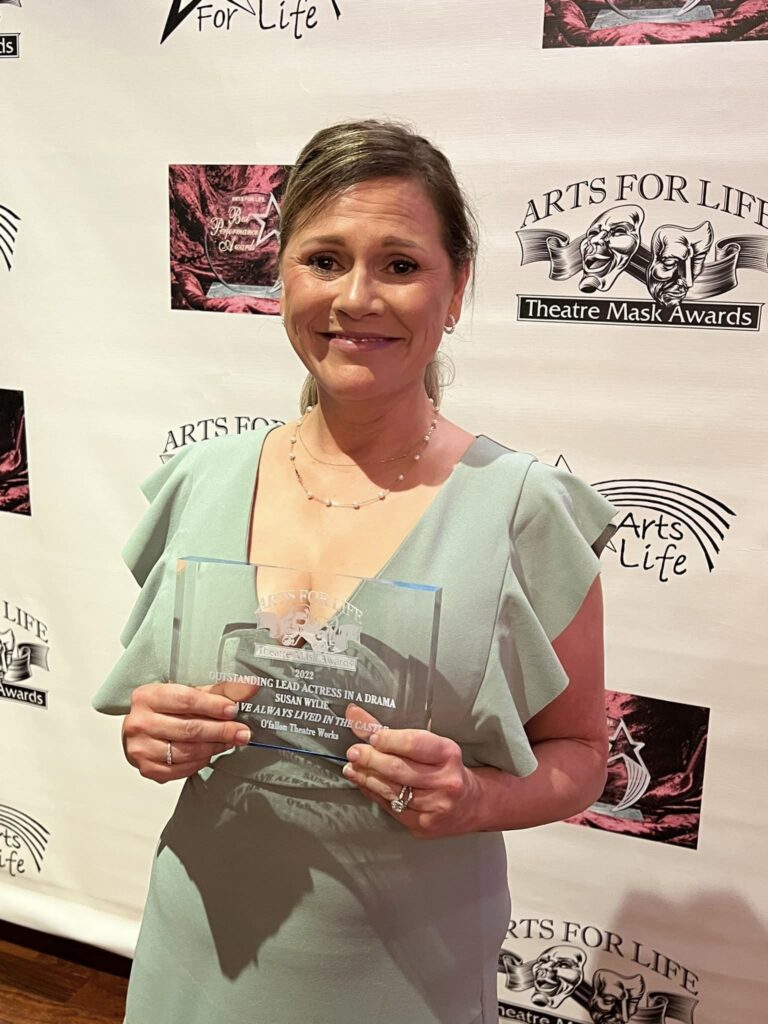By Lynn Venhaus
As we all accept that we will die, confronting our own mortality seems to be a lifelong journey – and often tip-toed around with family and friends. How we deal with the inevitability of our end and the loss of our loved ones leads to interesting debates.
Such is the case with Albion Theatre’s latest offering – “Colder Than Here” by Laura Wade. The British playwright sensitively tackles the tricky subject matter, as a terminally ill cancer patient plans her funeral, selects her final resting place, and attempts to discuss the topic with her family.
Grief mixed with humor? Yes, it’s tactful, situational and conveys both pain and love, as does exploring complex family relationships. With utmost delicacy, director Robert Ashton has gracefully staged this comic drama in the intimate Kranzberg Black Box Theatre.
Ashton has cast a quartet that can carry the weight of these characters and still be likable, starting with Susan Wylie as the mom staring at her own fate with clear eyes and an open heart.

In typical Mom fashion, Myra is the caretaker, but now others must take care of her. Wylie is convincing as the kindhearted and considerate mother who is trying to nudge her family into accepting what’s ahead. She balances Myra’s inner strength with the outward effects of bone cancer on a human body and does so subtly in an exceptionally well-modulated performance.
Her family’s reluctance to accept the inevitable is understandable as they each have different ways of dealing with the impending loss — but exasperating for her. As Myra becomes sicker, she is aware of the ticking clock, if others aren’t, and she wants matters confirmed. She has even prepared a Power Point with fancy fonts, which garners mixed reactions.
Her husband, Alec, in a skillfully nuanced portrait by David Wassilak, is a taciturn sort used to blocking out the cacophony of three women in the house. Of course he cares for them, but like most dads, he has his routines. He really doesn’t want to talk about anything beyond the immediate issues, like the chilly house because of a wonky boiler.
Now, the daughters are grown, live on their own, but return for visits or temporary stays. How daughters Harriet and Jenna cope with adulting is a mixed bag. They couldn’t be more opposite in appearance and attitudes.
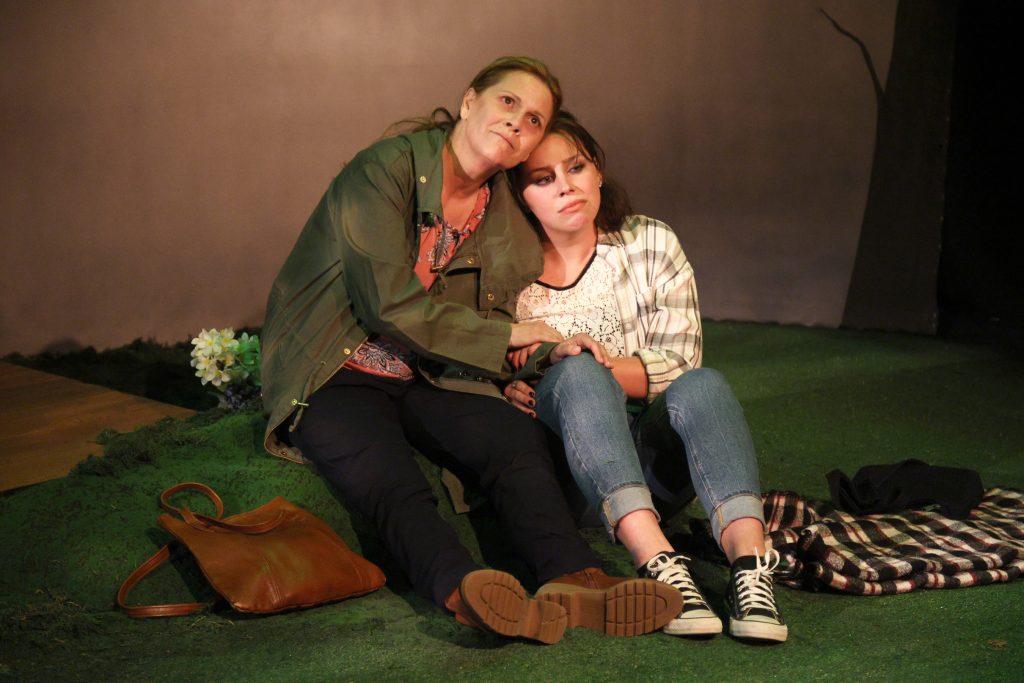
Anna Langdon is Harriet, the more level-headed, ‘settled’ one, and Livy Potthoff is the rebellious unfiltered Jenna, an impressive debut in a showier part – the daughter who everyone is used to ‘acting out.
The girls express their worries, sadness and guilt, and it is frightening new territory. While they bicker, they still care for each other amd realize they will need each other..
Langdon conveys Harriet’s attempts to maintain control but her anxiety is manifested through eczema. Jenna, who has overcome an eating disorder but not boyfriend troubles, becomes a reliable companion for her mom when checking out cemeteries. You just never know how people will respond.
Wade’s first published play opened in London in 2003, and it’s obvious she has experienced grief and loss, for she created authentic dialogue and believable situations to offer poignant reflection.
Anyone who has gone through similar situations will relate. Grief is a very personal experience, and one can often take comfort with others going through the same thing – or shut down. Everyone is different in how they handle it.
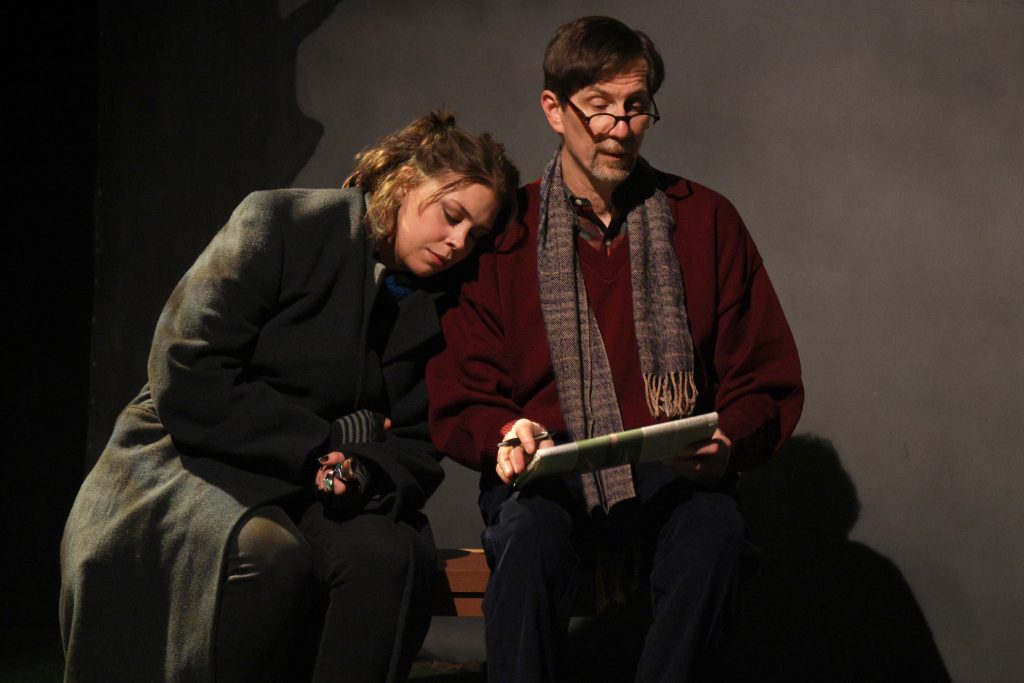
A family can grow closer, which happens here. They go through feelings of denial, despair, rage, isolation and helplessness. In finally talking about it, they share warm family moments that lead to empathy, understanding and perspective.
Trying not to be morose or maudlin, Wade successfully integrated gentle humor into the mix. And comic relief is welcome, in any circumstance but important here as a coping mechanism.
In newsroom parlance, gallows humor is resorted to when headlines are routinely horrific, so to continue working on tough subjects, someone will crack an inappropriate joke that makes people laugh, thus releasing tension.
The play’s funniest sight gag is a painted and decorated cardboard coffin sitting in the living room (kudos to set builder Jeff Kargus).
We’re not talking a gut-busting farce like the legendary “Chuckles the Clown” funeral episode of “The Mary Tyler Moore Show,” or even the amusing Monty Python ditty “Always Look on the Bright Side of Life,” now featured in the musical “Spamalot,” which incidentally is the most requested song at British funerals.
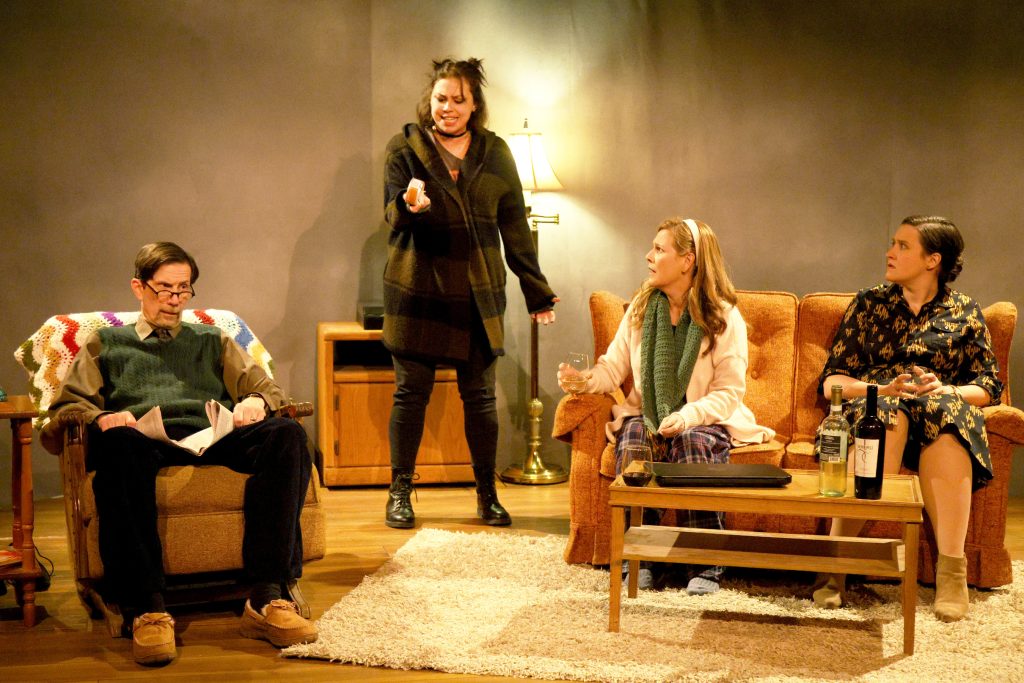
But the humor lands, and it’s a nice component. The cast’s emotional journeys are natural as they each grapple with reality, eventually coming together in their shared grief. And because of the mom’s efforts, they can start to heal.
Instead of projections used to show different cemetery grounds, Gwynneth Rausch is a narrator who explains where each setting is and what it looks like.
The simple performance space features a living room with ‘dad’s chair’ and a sofa, and the outdoor gravesites are represented by Astroturf-type grass. The well-appointed set is designed by Kristin Meyer, with construction help from Kargus.
Michelle Zielinski’s lighting design astutely captured the atmosphere, and Ted Drury’s sound design – and Power Point presentation (kudos for the Papyrus!) are excellent. Rausch handled the props and costume designer Tracey Newcomb comfortably outfitted the characters in age-appropriate attire. CJ Langdon was the assistant director.
“Colder Than Here” is a candid account of what people experience on a daily basis, and is sensitively handled so that the points are well-taken. It helps that everyone involved in the project brings an admirable level of commitment to telling this story in a helpful, heart-warming way. And as always, with Albion’s plays set in the UK, the dialect work is impeccable.
When going through difficulties, the only real answer is Love. Do love, never forget to remember. It won’t change the outcome, but it will help get through another day. And that’s a good takeaway from Wade’s play and Albion Theatre’s thoughtful efforts.
Albion Theatre presents “Colder Than Here” June 13-29 at the Kranzberg Black Box Theatre, 501 N. Grand Blvd., St. Louis. The performances are Fridays and Saturdays at 8 p.m. and Sundays at 2 p.m. The play is presented as a one-act in 90 minutes without intermission. For more information, visit www.AlbionTheatreSTL.org.
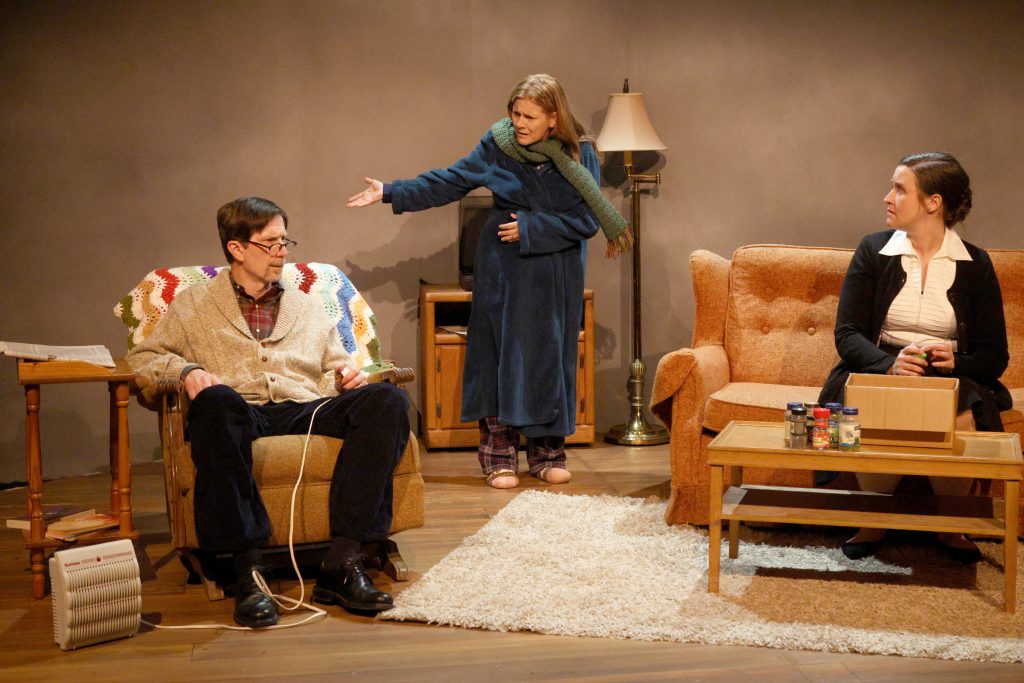

Lynn (Zipfel) Venhaus has had a continuous byline in St. Louis metro region publications since 1978. She writes features and news for Belleville News-Democrat and contributes to St. Louis magazine and other publications.
She is a Rotten Tomatoes-approved film critic, currently reviews films for Webster-Kirkwood Times and KTRS Radio, covers entertainment for PopLifeSTL.com and co-hosts podcast PopLifeSTL.com…Presents.
She is a member of Critics Choice Association, where she serves on the women’s and marketing committees; Alliance of Women Film Journalists; and on the board of the St. Louis Film Critics Association. She is a founding and board member of the St. Louis Theater Circle.
She is retired from teaching journalism/media as an adjunct college instructor.


